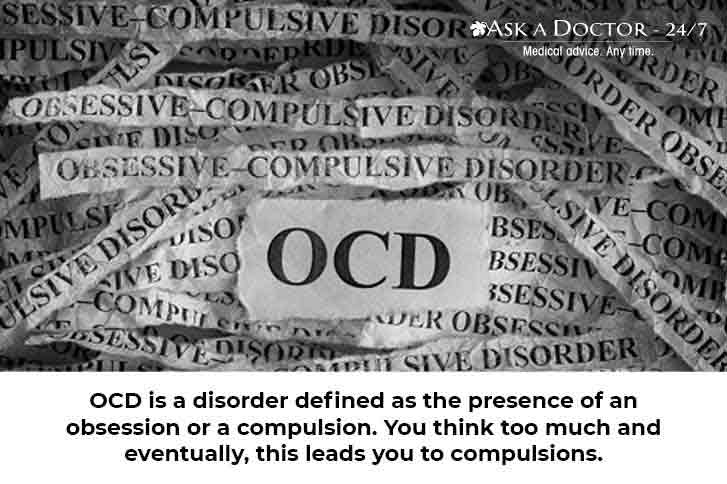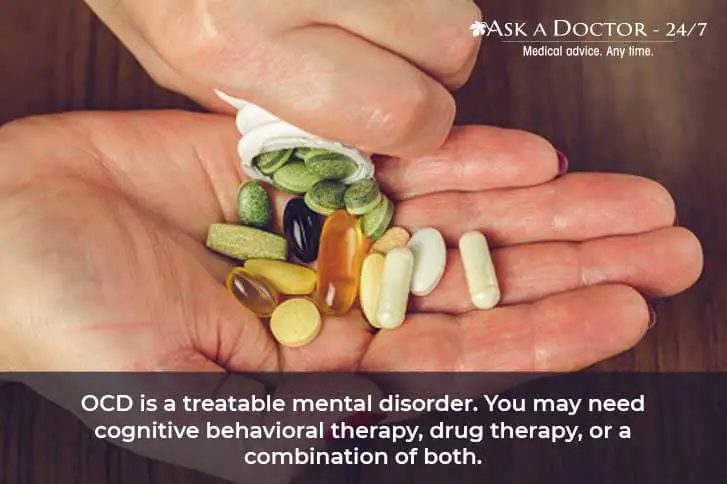What Does OCD Mean And How Does It Relate To Perfectionism?
Do you often find yourself worrying about whether the main door was locked before you left? Do you feel the need to double-check it? Worrying about something that you feel you've forgotten to do is common. While this means you’re a completely rational person – possibly even a perfectionist, but there are others who may double-check the door 20 times to make sure it’s locked. These are the people struggling with Obsessive Compulsive Disorder (OCD).
Your might have heard of singer, songwriter Katy Perry and soccer star David Beckham opening up about their struggles with OCD. The disorder can affect people of all ages and walks of life and is often misunderstood as a disorder that simply means being a 'perfectionist'. OCD and perfectionism affect the lives of people in different ways. Before we discuss how these are related, let’s first understand what OCD is.

What OCD means & how to recognize it?

OCD is a chronic, long-lasting disorder in which a person has certain uncontrollable thoughts repeatedly (obsessions), or feels the need to perform certain routines over and over again (compulsions). People with OCD have:
- Obsessive thoughts - Idea that items must line up “just right”, fear of being contaminated by germs, or fastidious attention to detail.
- Compulsive behavior - Excessive double-checking of things, spending a lot of time washing or cleaning, or counting things several times.
- No control over their thoughts or behavior - This leads to tremendous distress, consumes excessive amount of time, and interferes with their relationships and daily lives.
How OCD relates to perfectionism?

Perfectionists have high expectations of themselves and others, and to some degree, perfectionism is beneficial for them. On the flip side, when perfectionism becomes problematic or uncontrollable, the high standards set by them can also drive them to be extremely critical of themselves as well as others. OCD is strongly linked with this unhealthy form of perfectionism.
In short, OCD can be characterized as an extreme or unhealthy form of perfectionism, which leads to fear, anxiety, distress and other negative outcomes that exhaust you physically and emotionally.

Signs that your perfectionism has gone out of control

Below are some traits of perfectionists that you may be able to spot in yourself or in people you think are perfectionists:
- You have extremely high standards and do not see a task finished until the result is perfect according to these standards.
- You are depressed by unmet goals and can’t stop thinking about the mistakes you made.
- You recognize that your perfectionism is hurting you, but you consider it the price to be paid for your success.
- You are judgmental and highly critical of others.
- You take an excessive amount of time just to achieve perfection.
Treatment for OCD

OCD can be treated with cognitive behavioral therapy, drug therapy, or a combination of both. In addition, self-help is also important:
- Medication - This involves using anti-depressants that alter the balance of brain chemicals, and thus, improves the condition.
- Cognitive behavioral therapy - This therapy uses exposure and response prevention technique. The patients are exposed to the source of their obsession repeatedly and learn ways to stop performing these rituals again and again so that patients can resist these compulsions.
- Self-care strategies - OCD and stress go together. So, it’s important that you learn to cope effectively with stress. Eating well, exercising, and getting enough sleep is one part of this equation. One should also try mindfulness and relation techniques.
How to control perfectionism?

If you feel that perfectionism interferes with your normal well-being, you should ask your doctor for available treatment options. Recognize that imperfection is a problem, and set attainable and realistic goals. It’s important that you acknowledge that everyone makes mistakes and think of these as lessons. And if you’ve trouble overcoming the condition, seek help.
OCD and perfectionism are treatable conditions and have subtle differences. While you can have perfectionist tendencies, you may think that you have OCD. So, if you’re unsure, you should always consult your doctor. Self-help therapies can also be used in your daily life to help manage perfectionism and OCD symptoms.
If you wish to know more about OCD and related disorders you can consult an online Psychologist now!
Ask a Specialist
Recent Questions


